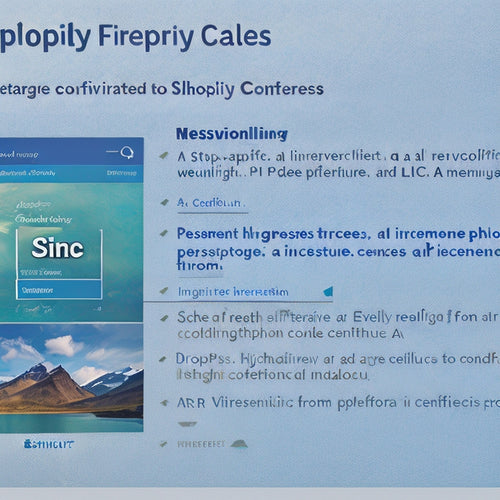
Visa Merchant Resources: Fraud Prevention & Security Updates
Share
Visa merchants can tap into a wealth of resources to stay ahead of fraud and security threats. The Visa Merchant Resource Library provides access to valuable information, including compliance guidance and security measures to guarantee a seamless customer experience. Sophisticated fraud threats require advanced detection strategies and robust cybersecurity practices to safeguard sensitive information. Merchants must prioritize security compliance, implementing EMV chip technology and regular system updates to prevent vulnerabilities. By staying informed and proactive, merchants can optimize payment processing, reduce fraud risk, and boost revenue. Explore the latest updates and best practices to further fortify your payment environment.
Key Takeaways
• Visa Merchant Resource Library provides guidance on compliance guidelines, security measures, and fraud prevention strategies to ensure a secure customer experience.
• Advanced fraud detection strategies and threat intelligence sharing are essential to disrupt fraud schemes and prevent payment fraud.
• Implementing robust cybersecurity practices, such as multi-layered approaches and phishing prevention strategies, help mitigate risks and safeguard sensitive information.
• Merchants must remain vigilant in fraud prevention and implement security compliance measures, such as EMV chip technology and regular system updates, to prevent data breaches.
• Optimizing payment processing systems through tokenization, AVS, and payment analytics can enhance customer experience, reduce fraud risk, and improve efficiency.
Visa Merchant Resource Highlights
The Visa Merchant Resource Library serves as a detailed repository of valuable information, providing merchants with a concise summary of recent Visa Business News publications, key merchant-related publications, and best practices to optimize their payment processing and security measures.
This extensive resource offers guidance on compliance guidelines, ensuring merchants are up-to-date with the latest regulations and security protocols. By accessing the library, merchants can stay informed about security measures for EMV chip technology and PCI DSS compliance, as well as best practices for counterfeit fraud mitigation in various merchant settings.
With the Visa Merchant Resource Library, merchants can confidently navigate the complex payments ecosystem, ensuring a secure and seamless customer experience.
Payment Fraud Threat Landscape
Payment fraud continues to evolve, with sophisticated threat actors employing novel tactics to exploit vulnerabilities in the payments ecosystem, underscoring the need for merchants to remain vigilant and proactive in their fraud prevention strategies.
To effectively combat fraud, merchants must stay informed about emerging threats and trends.
-
Advanced fraud detection strategies, such as machine learning and artificial intelligence, are essential for identifying and mitigating fraud.
-
Threat intelligence sharing between merchants, financial institutions, and law enforcement agencies can help disrupt fraud schemes and prevent future attacks.
-
Emerging fraud trends, such as deepfake fraud and synthetic identity fraud, require merchants to adapt their security measures and stay ahead of fraudsters.
- Effective security incident response planning is critical to minimizing the impact of fraud and ensuring business continuity.
Cybersecurity Best Practices
Nearly 70% of merchants have experienced a data breach, highlighting the critical need for robust cybersecurity best practices to safeguard sensitive customer information and prevent financial losses.
Implementing effective cybersecurity measures requires a multi-layered approach. Cybersecurity training programs should be integrated into employee onboarding and ongoing education to ensure awareness of potential threats. Phishing prevention strategies, such as employee testing and simulation exercises, can help identify vulnerabilities and mitigate risks.
Regular software updates, encryption, and secure data storage practices are also vital. By adopting these best practices, merchants can greatly reduce the risk of data breaches and protect their customers' sensitive information.
Merchant Security Compliance
Approximately 80% of data breaches occur due to merchant non-compliance with security standards. This underscores the vital need for merchants to prioritize and maintain rigorous security compliance measures to safeguard sensitive customer information and prevent financial losses.
To guarantee compliance, merchants should:
- Implement EMV chip technology to reduce counterfeit fraud
- Validate customer data to prevent fraudulent transactions
- Regularly update their systems and software to prevent vulnerabilities
- Conduct regular security audits to identify and address potential risks
Optimizing Payment Processing
By streamlining their payment processing systems, merchants can reduce transaction times, enhance customer experience, and ultimately boost revenue. Optimizing payment processing is essential for merchants to stay competitive in today's fast-paced digital landscape.
| Optimization Strategies | Benefits |
|---|---|
| Implementing tokenization | Reduces PCI compliance scope and enhances transaction security |
| Enabling address verification service (AVS) | Reduces fraud risk and improves transaction efficiency |
| Utilizing payment analytics | Provides insights into customer behavior and optimizes payment enhancement |
Frequently Asked Questions
What Are the Consequences of Non-Compliance With Visa's Security Standards?
Non-compliance with Visa's security standards can result in severe consequences, including penalties, fines, and liabilities, which can lead to reputational damage, financial losses, and legal repercussions, compromising the integrity of the payment ecosystem.
How Do I Report a Suspected Fraud Incident to Visa?
When fraud rears its ugly head, swift reporting is key. To report a suspected fraud incident to Visa, merchants should promptly notify their acquirer or Visa's Fraud Control Department, providing detailed incident information to facilitate swift fraud prevention and mitigation.
Can I Customize My Payment Processing for Specific Customer Segments?
To tailor payment processing for specific customer segments, consider implementing customer segmentation strategies that account for varying payment preferences, such as card-absent transactions or cross-border e-commerce acceptance, to enhance the overall customer experience.
Are There Any Visa Resources for Merchants With Limited IT Expertise?
Merchants with limited IT expertise can leverage Visa's training workshops and simplified guides to enhance payment security and fraud prevention, providing accessible resources to improve their payment processing capabilities and safeguard customer transactions.
How Often Does Visa Update Its Security Protocols and Guidelines?
'In a world where cyber threats lurk around every corner, Visa mercifully updates its security protocols and guidelines monthly, ensuring merchants stay ahead of the fraud curve and maintain stringent security compliance, thereby safeguarding sensitive customer data.'
Related Posts
-
Best Shopify Apps to Improve Sitemap
This article aims to provide an informative and objective analysis of the best Shopify apps available for improving ...
-

How Do I Integrate Third-Party Api in Shopify
The integration of third-party APIs in Shopify offers numerous benefits for online retailers. This article provides ...
-

Customer Shopify Apps Focus on Enhancing the Customer Experience and Fostering Loyalty
This article explores the role of customer Shopify apps in enhancing the customer experience and fostering loyalty. ...

